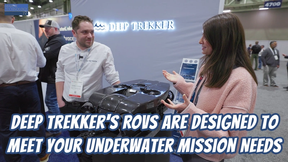The seabed oil spill that is still ongoing next to the Frade oil field in the Campos Basin is again raising the local awareness to the inherent dangers associated with O&G exploration. As many politicians and environmentalists hit the panic button, this kind of spill is, if not expected, is a definite possibility. There is simply no failsafe way to drill for oil and when the actual drilling is done underwater the risks compounded and the time it takes to resolve the issue is also increased. As this particular spill is a deep water event 1,200 meters deep it may not be so easy to stop and Chevron, the well operator has already taken steps to shut down the well permanently, this may also point to a loss of well control and a possible blowout.
Chevron already admitted that something went wrong at the well it was drilling which is located 130 km from the coastal city of Macaé, which is the gateway to the Campos Basin oil fields. Chevron also reported that the well is leaking around 330 barrels/day, however according to Skythruth, which specializes in interpreting satellite imagery, the spill may reach a volume of 3,738 barrels a day, therefore it may actually be 10 times bigger that acknowledged.
It is important to remember that something similar happened at the Deep Horizon spill at the GOM where the first information releases were also conservative, and when the truth finally came out the spill was actually 12 times bigger that the first estimates released by BP. It is also relevant to note that the drilling rig in this case here in Brazil is also owned and operated by Transocean, which was also a culprit at the GOM disaster, although this is most probably a coincidence as Transocean is well regarded as a premier drilling operator.
As luck has it the spill is being pushed further offshore by the currents, but had it been the other way around it would be an environmental calamity as the shores nearest to the well are dotted by delicate natural environments within nature preserves and famous tourist areas such as Búzios. This accident will hardly slow down, much less stop O&G exploration in Brazil, but it is being considered a definite wakeup call by the local industry and government to better prepare themselves for future deep water spills. Looking at the intense volume of drilling being undertaken off the Brazilian coast, this is bound to happen sooner or later and we may not be so lucky with the currents next time.
Claudio Paschoa
• brazil
• campos
• chevron
• deepwater
• frade
• macaé
• oilspill
• seabed
• skytruth
• transocean
• well
Paschoa, Claudio
Claudio Paschoa is Marine Technology Reporter's correspondent in Brazil.
Email: [email protected]












 December 2025
December 2025



